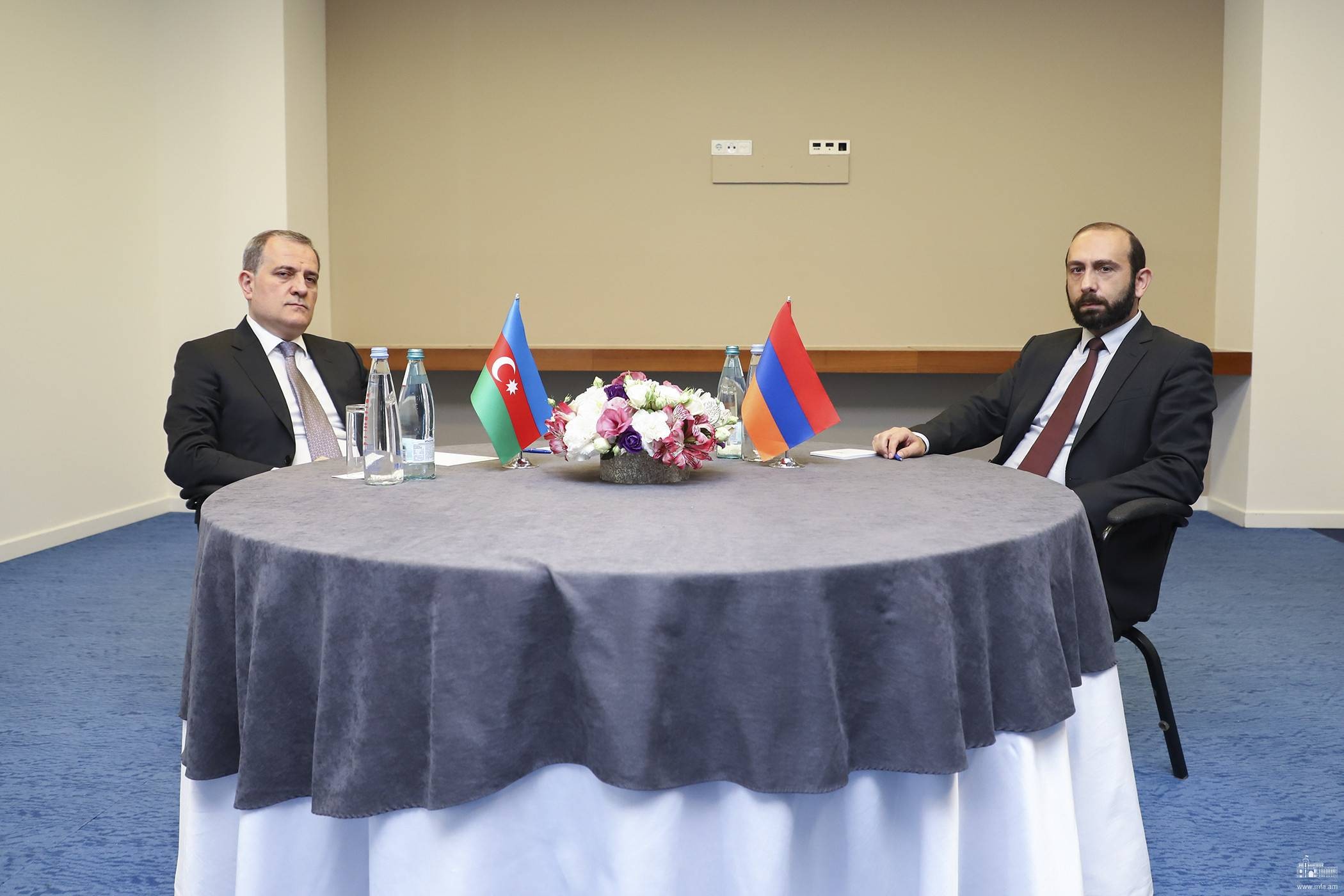
The foreign ministers of Armenia and Azerbaijan have met in Tbilisi — the first meeting of its kind since the end of the Second Nagorno-Karabakh War. Neither delegation announced updates on a potential peace agreement or the delimitation of borders between the two countries.
The Armenian Foreign Minister Ararat Mirzoyan and his Azerbaijani counterpart Jeyhun Bayramov touched on a number of issues related to the normalisation of relations between Azerbaijan and Armenia in the 16 July meeting, which was mediated by Georgia’s own Minister of Foreign Affairs, Ilia Darchiashvili.
They also discussed the implementation of mutual commitments and exchanged views on possible future steps regarding the Nagorno-Karabakh conflict, the Azerbaijani Foreign Ministry said in a statement.
Bayramov noted that all efforts should be aimed at achieving progress in the regulation of interstate relations based on ‘post-conflict realities’ following the war.
The Azerbaijani minister also emphasised the need to implement the provisions of the ceasefire and the ‘withdrawal of Armenian forces from the territory of Azerbaijan’, referring to Nagorno-Karabakh.
Bayramov also requested clarification on the fate of nearly 4,000 Azerbaijanis who remain missing, mostly from the First Nagorno-Karabakh War.
Similarly, the Armenian Foreign Minister Ararat Mirzoyan emphasised the importance of addressing humanitarian issues, including the release and repatriation of Armenian POWs.
Mirzoyan also stressed the importance of reaching a political settlement to the Nagorno-Karabakh conflict through the OSCE Minsk Group, the status of which has become controversial.
Details about a peace agreement and the delimitation of the borders were not mentioned in either statement released by the two ministries.
Antony Blinken, the US Secretary of State, commended the meeting, saying that ‘direct dialogue is the surest path to resolving Azerbaijani and Armenian differences’.
.@bayramov_jeyhun and @AraratMirzoyan took a positive step today, meeting in Tbilisi. Direct dialogue is the surest path to resolving Azerbaijani and Armenian differences.
— Secretary Antony Blinken (@SecBlinken) July 16, 2022
A prelude to the meeting
Since the end of the war, Armenia and Azerbaijan have repeatedly accused each other of violating the ceasefire agreement.
However, in recent months, both countries have taken several steps toward more active negotiations on the resolution of the conflict and the demarcation of borders.
Despite meetings mediated by Russia and the EU, however, the sides were unable to reach agreements regarding a peace treaty, demarcation, or opening transport links.
Azerbaijani President Ilham Aliyev welcomed the meeting in Tbilisi, at the same time demanding the withdrawal of all Armenian troops from Nagorno-Karabakh. He claimed that a senior official from Russia’s Ministry of Defence had promised him that Armenia would withdraw its troops by June, but that they did not ‘keep their word’.
‘If Armenia does not want to withdraw its armed forces from the territory of Azerbaijan, then let us know this clearly, and we will know what to do next’, Aliyev said.
‘What will be our answer? Perhaps it is inappropriate to say it now.’
A day prior to the meeting in Tbilisi, Armenian Prime Minister Nikol Pashinyan announced plans to station border guards from the National Security Service across all of Armenia’s borders.
Currently, only the borders with Georgia and Iran have border guards stationed on them, while Russian troops observe the border with Turkey, and the Armenian army the border with Azerbaijan.









